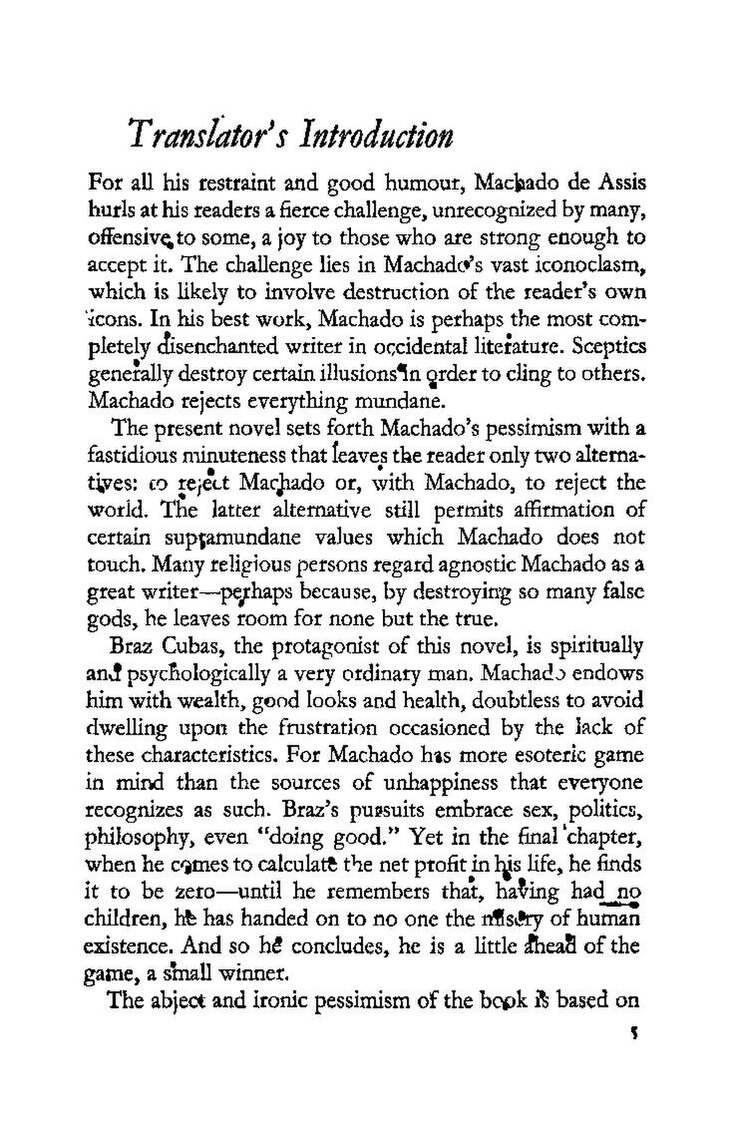Translator’s Introduction
For all his restraint and good humour, Machado de Assis hurls at his readers a fierce challenge, unrecognized by many, offensive to some, a joy to those who are strong enough to accept it. The challenge lies in Machado's vast iconoclasm, which is likely to involve destruction of the reader’s own icons. In his best work, Machado is perhaps the most completely disenchanted writer in occidental literature. Sceptics generally destroy certain illusions in order to cling to others. Machado rejects everything mundane.
The present novel sets forth Machado’s pessimism with a fastidious minuteness that leaves the reader only two alternatives: to reject Machado or, with Machado, to reject the world. The latter alternative still permits affirmation of certain supramundane values which Machado does not touch, Many religious persons regard agnostic Machado as a great writer—perhaps because, by destroying so many false gods, he leaves room for none but the true.
Braz Cubas, the protagonist of this novel, is spiritually and psychologically a very ordinary man, Machado endows him with wealth, good looks and health, doubtless to avoid dwelling upon the frustration occasioned by the lack of these characteristics. For Machado has more esoteric game in mind than the sources of unhappiness that everyone recognizes as such. Braz's pursuits embrace sex, politics, philosophy, even "doing good." Yet in the final chapter, when he comes to calculate the net profit in his life, he finds it to be zero—until he remembers that, having had no children, he has handed on to no one the misery of human existence. And so he concludes, he is a little ahead of the game, a small winner.
The abject and ironic pessimism of the book is based on
